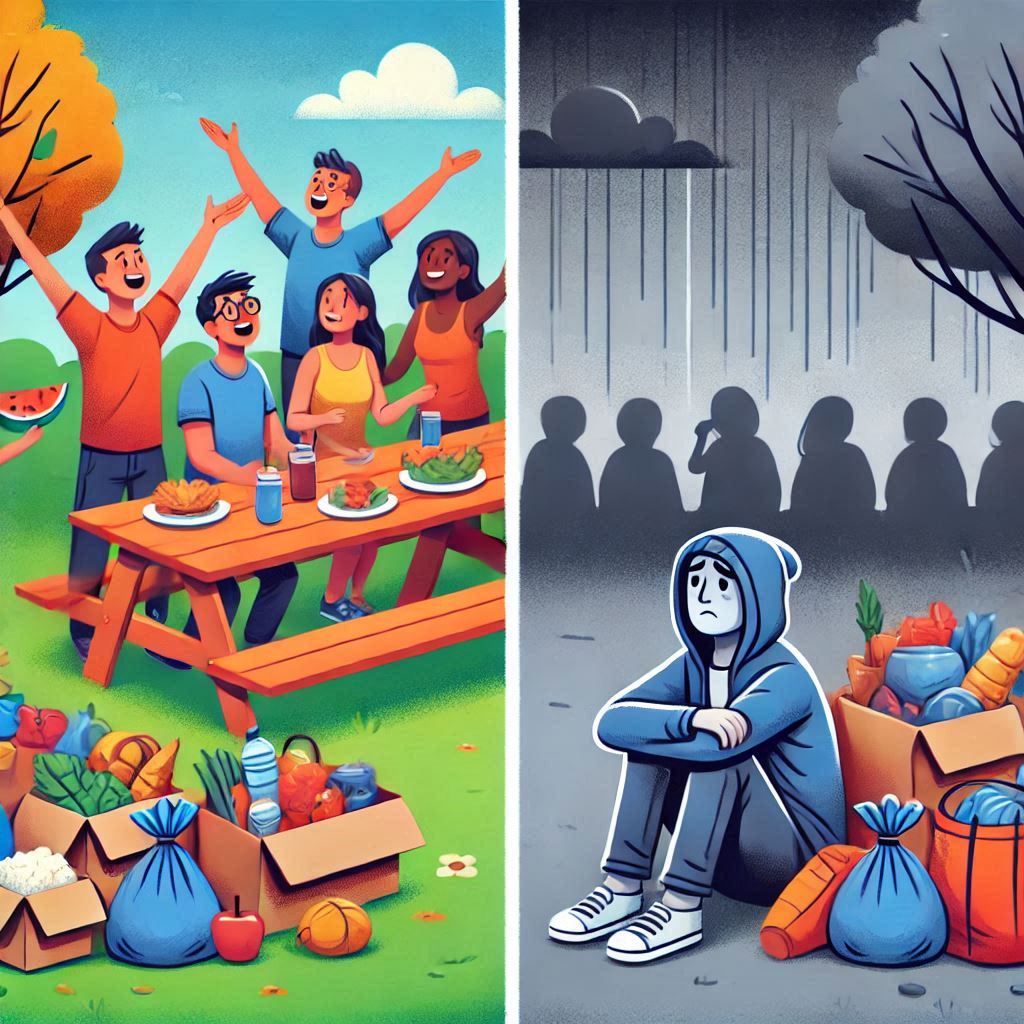Introduction
Selfishness means thinking only about yourself, your wants, and your needs without considering others. It can hurt relationships, make others feel ignored, and create an environment where people don’t trust or respect you.
Being considerate, sharing, and thinking about others’ feelings helps build stronger friendships and family bonds.
Some short stories to connect being generous vs selfishness

Disclaimer: The names mentioned in these stories are used purely for fictional and illustrative purposes. Any resemblance to actual persons, living or deceased, is purely coincidental.
Sharing At School

Aarav was always first in line for the school lunch, grabbing the biggest slice of veg pizza every time. His friends noticed that Aarav would never ask if they wanted to share or if someone else had enough.
One day, the cafeteria ran out of food before everyone got served, and Aarav saw his best friend, Raj, was left hungry. Raj didn’t say anything, but Aarav felt guilty. He realized his selfish behavior had hurt his friend.
The next day, Aarav decided to share his lunch, offering Raj half of his sandwich, which made both of them happy.
Aarav learned that thinking about others brings joy to everyone.
Sharing At Family

Neha loved playing computer games, and she would hog the family computer for hours without letting her siblings have a turn. Her brother wanted to use it for his school project, but Neha didn’t care that time.
One evening, their mother sat Neha down and explained how her behavior was affecting the family.
She reminded her that sharing is an important part of being a family. Neha agreed to set a schedule so everyone had time on the computer.
She saw that when she thought about others, her family was much happier, and there was less arguing at home.

Action Points
- Before making a decision, ask yourself how it will affect others around you.
- Practice sharing—whether it’s your time, resources, or attention—with friends and family.
- Be willing to compromise, ensuring everyone has a chance to enjoy things equally.

Why did the selfish person refuse to share their dosa?
Because they said, “It’s my-sore masala, not yours!” 😄





